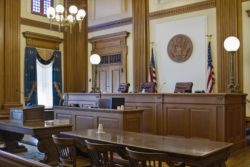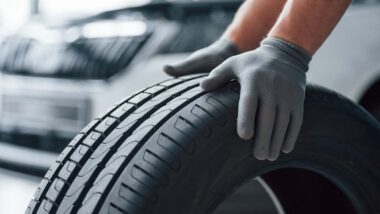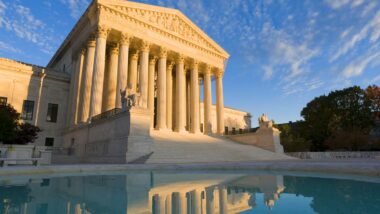
The coronavirus has forced many courts around the country to reduce their services or close completely, leading to a mounting pile of pending cases.
This month resulted in court closures around the country – from the U.S. Supreme Court to state district courts. Unfortunately, courthouses may be at risk for spreading coronavirus, due to the small public spaces and tightly packed bench seats.
In the early days of court closures, only potentially exposed individuals were barred from certain courthouses. Jury trials continued as usual, although some juries requested to be sat apart from each other or excluded based on their at-risk status.
However, courts are now taking stronger actions to protect people from being exposed to COVID-19. The District of Maryland’s chief judge recently cancelled all jury trials and suspended all non-emergency court hearings.
Have your legal matters been delayed by the coronavirus court closures? Are you worried about your ability to take legal action or benefit from settlements during the global pandemic? Get legal help by clicking here.
“We decided the ends of justice are served by ordering these postponements because the reasons for having those postponements outweigh the interest of the public in having a speedy trial,” U.S. District Judge James Bredar told Law360.
When the outbreak passes, legal professionals will likely be overwhelmed with pending cases, rescheduled court dates and other deadlines. Judge Bredar notes that the District of Maryland will likely face a significant backlog of criminal cases.
“Unquestionably when we come out the other side of this event, dockets will be very crowded and we will need to make up for lost time,” District of Maryland Chief Judge Bredar said in his statement to Law360.
For civil cases, these delays will result in postponing jury trials and deadlines. This could have significant consequences for everyday consumers, including individuals who are taking action against coronavirus-related issues.
For criminal cases, the delays have caused some concerns that people accused of crimes will be held for significantly longer than is typical.
The Speedy Trial Act of 1974 restricts the length of federal prosecutions, but these regulations – designed to make sure that accused defendants are not indefinitely held in jail – may be tossed to the wayside amidst widespread, indefinite court closures.
“You can’t just shut down the public safety function in a crisis,” Michele Hanisee, president of the union representing Los Angeles County deputy district attorneys union, told the Los Angeles Times. “We cannot deprive those accused of a crime their due process rights. The courts have to keep working.”
Burdening Already Overburdened Court Systems
Unfortunately, many of the court districts hit the hardest by the coronavirus outbreak are those who are already overburdened by federal cases.

For example, California is home to many tech companies – meaning that legal action against these companies is often centered in the state’s district courts.
Similarly, New Jersey often plays host to legal action against pharmaceutical companies which call the state home.
These courts may also be burdened by the complexity of cases in their jurisdiction. The caseload for each district can be analyzed by considering the complexity of cases and the number of judgeships in the district which are responsible for these cases. The result of this calculation, regularly analyzed by federal judiciaries, resulted in “weighted caseloads.”
For reference, a “manageable” docket includes 430 weighted cases per judgeship. In contrast, New Jersey’s caseloads are more than twice this amount – with each judgeship in the district responsible for 1,044 weighted cases. Judgeships in the Eastern District of Louisiana are the most overburdened with an average of 1,200 weighted cases directed to each judge.
With mass closures of these and other courts, the legal system will be forced to work harder and longer to resolve criminal and civil cases. For already backlogged courts, the consequences of coronavirus closures and delays may be seen for years to come.
COVID-19: Legal Consequences vs. Public Health Consequences
Although court closures can have significant consequences for the legal sphere, mass closures of courts and other public spaces can help “flatten the curve.” This refers to the community measures that can help delay the spread of coronavirus so that the healthcare system is not overwhelmed.
Without protective measures such as social distancing or self isolation, the coronavirus will spread more quickly. This would result in a large number of cases in a short period of time – overwhelming the capacity of the healthcare system.
Unfortunately, the American healthcare system does not have the supplies or manpower to handle a sudden influx in COVID-19 cases. Many resources are already being used to help patients affected by seasonal flu complications, other critical care needs and routine treatments.
If the healthcare system was overwhelmed by the number of COVID-19 cases, people may not get the care they need to survive the virus or other life-threatening conditions.
By being proactive about slowing the spread of COVID-19, society can ensure that at-risk individuals (including older adults and people with pre-existing conditions) are able to get the care they need to survive potential complications.
Join a Free Coronavirus Class Action Lawsuit Investigation
If you believe your rights were violated in a way that is directly related to the coronavirus pandemic, you may qualify to join this coronavirus class action lawsuit investigation.
ATTORNEY ADVERTISING
Top Class Actions is a Proud Member of the American Bar Association
LEGAL INFORMATION IS NOT LEGAL ADVICE
Top Class Actions Legal Statement
©2008 – 2026 Top Class Actions® LLC
Various Trademarks held by their respective owners
This website is not intended for viewing or usage by European Union citizens.















3 thoughts onCoronavirus Leaves Courts With Cases Piling Up
My son has been held in county jail with minimum contact to family while left in limbo. When will we see s court room for possible release. With Pandemic in county jail and prisons will my healthy son contract the covid-19 and die behind bars without his family. I am so broken over all of this.
husband being held in jail in az postponed his court for 2 more months plus. has underlying conditions and 59 yrs old . took constutional rights to speedy trial away and putting his life at risk!
Yes. Being held in jail awaiting court IN JUNE. This is in Ohio. I’m not guilty and will not be proven guilty. However I’m bei6held with NO TIME WAVER SIGNED